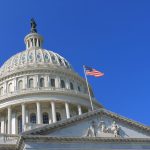Published January 6, 2015
The Commerce Department’s announcement last month that it had raised its estimate of GDP growth in the third quarter of 2014 from 3.9 to 5.0 percent (in annualized terms) has spurred talk of the possibility of a period of strong growth in 2015 and 2016. That’s far from certain, of course. But it’s possible.
Predictably, Paul Krugman of the New York Times uses the possibility of what he thinks will be an “Obama boom” to provide a thoroughly partisan reading of recent economic history. To summarize the Krugman thesis, presidents have little to do with the state of the economy. In particular, President Ronald Reagan had nothing at all to do with the period of strong growth that followed the deep recession of 1981 to 1982. But with the possibility of robust growth emerging in the near future, President Obama will in fact deserve some portion of the credit because of his enlightened policies, notwithstanding the general rule that presidents have little influence on economic performance. Meanwhile, if the economy sputters again in the coming year, it will clearly be the fault of the GOP Congress, not Obama.
There’s not much to find agreement with in this piece, of course, but he is right about one thing: Our political discourse assigns way too much credit, and blame, to presidents of both parties for the state of the national economy.
The United States is, in the main, a market-driven economy in a complex global environment. That means there are many factors that are beyond a president’s direct control that can alter the performance of important sectors of the economy and national growth trends. This is especially true of monetary policy. Presidents appoint members of the Federal Reserve Board, but, thankfully, a president’s influence over monetary policy is indirect at most. Meanwhile, among the most important influences on economic performance are global trade patterns and technological advances. Absent a full-scale retreat from the nation’s bipartisan post-war commitment to free trade, presidents have little ability in the short term to alter the influence of international commerce on the U.S. economy. And they have even less control over the pace of innovation and new technology.
It is understandable that voters bring their personal economic concerns into the voting booth in national elections. The problem arises when political candidates try to appeal to these voters with language that implies a president has command-and-control power over the economy. The result is a large disconnect between political perception and economic reality.
This is not to suggest that presidents have no influence on the economy at all. That’s plainly not true, either. Presidential policies can substantially alter the fiscal, tax, and regulatory environment within which the national economy operates. And these policies can either impede or promote rapid growth, in both the short and long terms.
But at any given moment in time, there are likely to be many factors well beyond a president’s control that have far more influence on the performance of the economy than governmental policy does. That’s why GDP growth can accelerate even in the face of anti-growth policies, or growth can decelerate even with the government pulling all the right levers.
As the 2016 presidential race heats up, once again the performance of the national economy is likely to dominate the discussion. Krugman and others are clearly trying to build the presumption that if strong growth occurs over the coming two years, Obama and his potential Democratic successor should reap the benefits.
Such a scenario would certainly be a challenge politically for the GOP, which is why now is a good time for the potential Republican candidates to think carefully about how they will make their economic arguments.
The starting point should be to presume nothing. Talk of an “Obama boom” is premature. Strong growth in the third quarter is good news, but, by itself, it does not erase several years of mainly tepid economic performance. From 2010 to 2013, the economy grew at an average annual rate of just 2.2 percent. That compares with an average annual growth rate of 4.6 percent from 1983 to 1987 — the years that immediately followed the 1981–82 recession. As others have noted, if the “recovery” now under way for more than five years were as strong as those that occurred in the 1980s and 1990s, many millions of Americans who are unemployed would be working, and the nation’s average income would be several thousand dollars higher than it is right now.
Moreover, while growth in the third quarter was strong, the first quarter of 2014 was abysmal: a contraction of 2.1 percent in annualized terms (due in large part to a particularly severe winter). Some of the growth that has occurred since March of last year was deferred first-quarter activity. Even if growth in the fourth quarter of 2014 also reached 5 percent (in annualized terms), growth over the entire year would be only 3.1 percent because of the very bad first three months of the year.
Further, the growth that has occurred since 2009 has not resulted in rising wages for middle-income households. According to the Census Bureau, median household income in the United States peaked in 2007, fell precipitously during the financial crash, and has not bounced back to its previous high point. In fact, the median household income in 2013 — $51,939 — is below what it was in 1996 (in inflation-adjusted dollars). Strong growth and a tightening labor market could push wages higher in 2015 and 2016, but there’s still a lot of ground to make up before workers will begin to feel that their prospects are better now than they were 15 or 20 years ago.
In short, even with strong growth in 2015 and 2016, there will be plenty of room for the GOP to criticize the performance of the national economy during the years of the Obama administration. The Republican critique of the Obama economy should start by highlighting where the administration policies have deviated from the proven recipe for long-term growth. The key principles are: low marginal tax rates; spending restraint and minimal deficit spending; an affordable and pro-work safety net; cost-benefit screens for regulatory interventions; free trade; and monetary predictability and stability. The evidence in support of these principles is overwhelming. Countries that adhere to them perform far better over the long run than countries with more activist governments, expansive welfare states, and heavily regulated economies. The implicit and explicit tax increases on work contained in the Affordable Care Act (ACA) should be highlighted by the GOP as a prime example of the anti-growth effects of the Obama agenda. The Congressional Budget Office (CBO) has estimated that the ACA will reduce the size of the nation’s workforce by 2.5 million people over the coming decade.
More challenging for the GOP will be persuading voters of the party’s competence in short-term economic management. The Democratic nominee for president in 2016 will undoubtedly make the argument (again) that the financial crash of 2007 to 2009 was the result of misguided GOP economic policy and that the Obama stimulus saved the country from another Great Depression.
The GOP presidential candidates will be tempted to ignore this argument altogether and focus on the future and not the past. That will work, but only to a degree. The crash was such a traumatic national event that it will probably still resonate with some voters in 2016.
The GOP candidates will be better off making a stronger argument than they did in 2012 about what happened, and what they would have done in its aftermath. There is ample evidence that the Obama-Biden contention that the crash was caused by Bush-era policies is absurd. Among other things, this was a worldwide event. Bush-era fiscal and tax policies did not cause asset bubbles in Europe or Asia. What did cause the bubble in the U.S. was a combination of misguided housing policy going back two decades, excessively easy money in the years 2004 to 2006, and the implicit federal guarantee of banks that are “too big to fail.”
In the years since the crash, the GOP has heavily criticized the Obama stimulus program, and with good reason. The law became a vehicle for Democratic legislators to fund their favored projects, regardless of merit. In the end, much of the $800 billion was wasted on activities that provided no stimulus for the economy or that would have occurred anyway even without stimulus funding.
But criticizing the Obama stimulus should not be confused with opposition to any and all steps that might have been taken to combat the deep recession. The GOP makes a mistake when it argues that the recipe for fighting a slump is fiscal restraint. In the short run, spending reductions contract the economy, not expand it. That is indisputable. Over the long run, yes, spending restraint and fiscal balance promote faster growth — but not in the short run.
Of course, it is also true that calls for perpetual stimulus are also misguided. No matter the state of the economy, there are some economists who believe more spending, more borrowing, and easier money are always the answer. That’s how Italy, Spain, and Greece got where they are today, with massive debts, high unemployment, stagnant growth, and no way out of the jams they are in except through painful austerity.
The truth is that the 2007–2009 recession was very deep, and a Republican president would surely have fought it through a combination of monetary easing and fiscal stimulus, too. The main difference is that a GOP president would have cut taxes and put more money into the private economy instead of state and federal bureaucracies.
The coming 2016 presidential race will turn once again on economic questions. The emerging field of GOP candidates will have a strong argument to make that the anti-growth policies of the Obama years have taken a toll — on employment, on incomes, and on opportunity. That will be true even if strong growth emerges in 2015. But to fully make the sale with voters, Republican candidates will need to reassure them that the GOP has not only the right long-term vision for restoring growth but also a practical approach to managing short-term crises and fluctuations.
— James C. Capretta is a senior fellow at the Ethics and Public Policy Center and a visiting fellow at the American Enterprise Institute.









